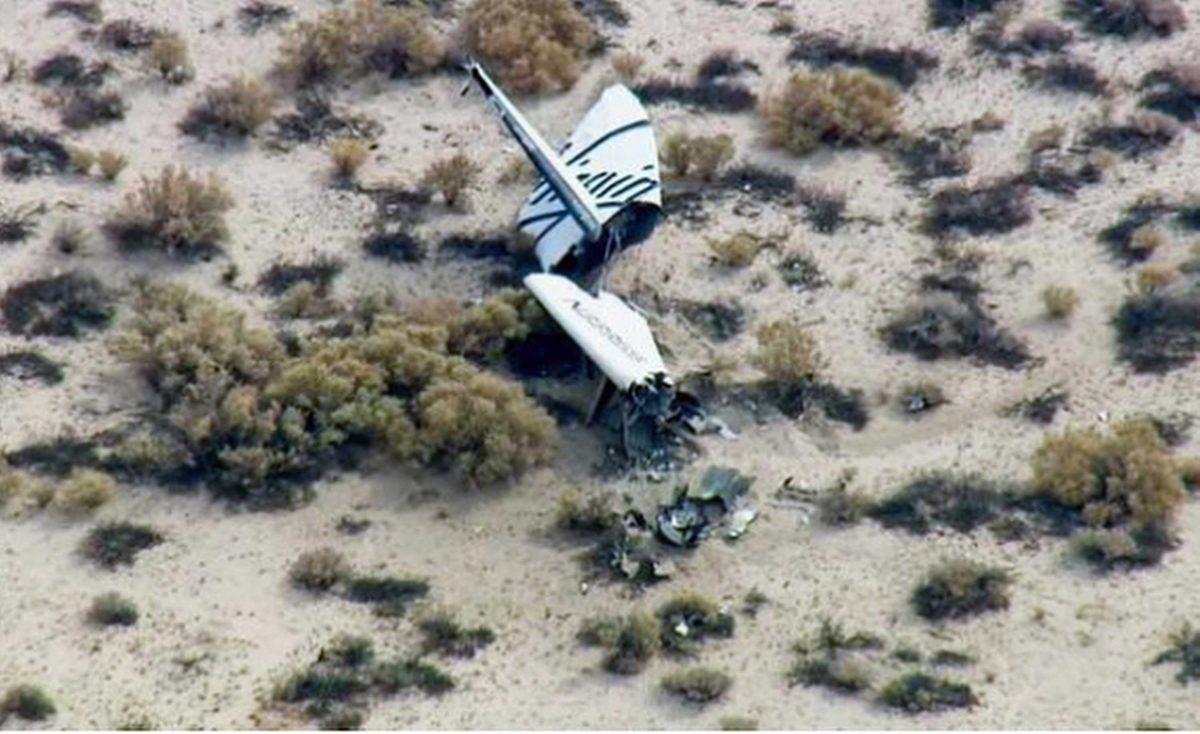It wasn’t until late in the day Saturday that I heard about the explosion of Virgin Galactic’s SpaceShipTwo.
During a test launch Friday, the craft, which was meant to be a prototype for Virgin’s burgeoning space tourism program, suffered a malfunction likely related to the new type of rocket fuel it used and exploded, killing one of the pilots immediately and seriously injuring the other.
But it was only scrolling through old tweets Saturday that I caught wind of the event.
Virgin founder Richard Branson quickly made his way to the crash site in California’s Mojave Desert, where he dropped his usual international-windsurfing-playboy persona to issue a statement of surprising bravery. After expressing his regret for the accident and sorrow for the pilot who was killed, Branson didn’t back down from his plan to get civilians, albeit only extremely wealthy ones, into space.
“Yesterday, we fell short,” Branson wrote in a statement on Virgin.com. “We will now comprehensively assess the results of the crash and are determined to learn from this and move forward as a company.”
It would have been very easy for Branson to put his tail between his legs here and back away from the whole Virgin Galactic venture. But he kept repeating the phrase, “move forward,” and despite Friday’s tragedy, pledged to continue with his commercial space travel venture.
I hope I never have to say this again in my life, but good on you, Richard Branson.
I can’t be sure about his motives, and I’m sure he will make an absurd amount of money if Virgin Galactic ever finds success, but I still have to admire Branson’s commitment to progress even in the face of disaster.
At the risk of sounding like that kid from high school geometry who’s weirdly passionate about space elevators, the future of the human race does lie off of the planet. At the rate the human population is expanding, it won’t be long before it exceeds the Earth’s carrying capacity.
So we have a few options if we want to avoid mass famine, disease and overcrowding. We can convince people to stop having kids — should be easy, right? Or we can get everyone to scale back a little on the oil, food and other nonrenewable resources. We’ll get right on that, just as soon as we can get everyone to believe that a hundred years’ worth of empirical evidence of changing climates isn’t a conspiracy between the United Nations to take everyone’s national sovereignty and grant funding.
So since neither of those seem to be viable options, we as a nation and a planet need to look for creative solutions to the problems facing us as a species. That might just include looking outside our planet to harness the resources available in our solar system.
And because government-funded space programs function on the whims of the global economy and military climate, it’s up to private ventures like Virgin Galactic to push progress in the field. There will be some difficulties along the way, like Friday’s disaster, but that’s part of any real progress.
I’ll probably never get to go to space. But there’s a good chance that during my life, I’ll see a person walk on Mars. I don’t really care whether it’s the United States government or some billionaire’s plaything that gets them there; it’ll be an amazing accomplishment either way.
Gordon Brillon is a 21-year-old mass communication senior from Lincoln, Rhode Island. You can reach him on Twitter @TDR_GBrillon.
Opinion: Virgin Galactic crash shouldn’t deter space exploration
November 2, 2014
This image from video by KABC TV Los Angeles shows wreckage of what is believed to be SpaceShipTwo in Southern California’s Mojave Desert on Friday, Oct. 31, 2014. A Virgin Galactic space tourism rocket exploded after taking off on a test flight, a witness said Friday. (AP Photo/KABC TV)
More to Discover








